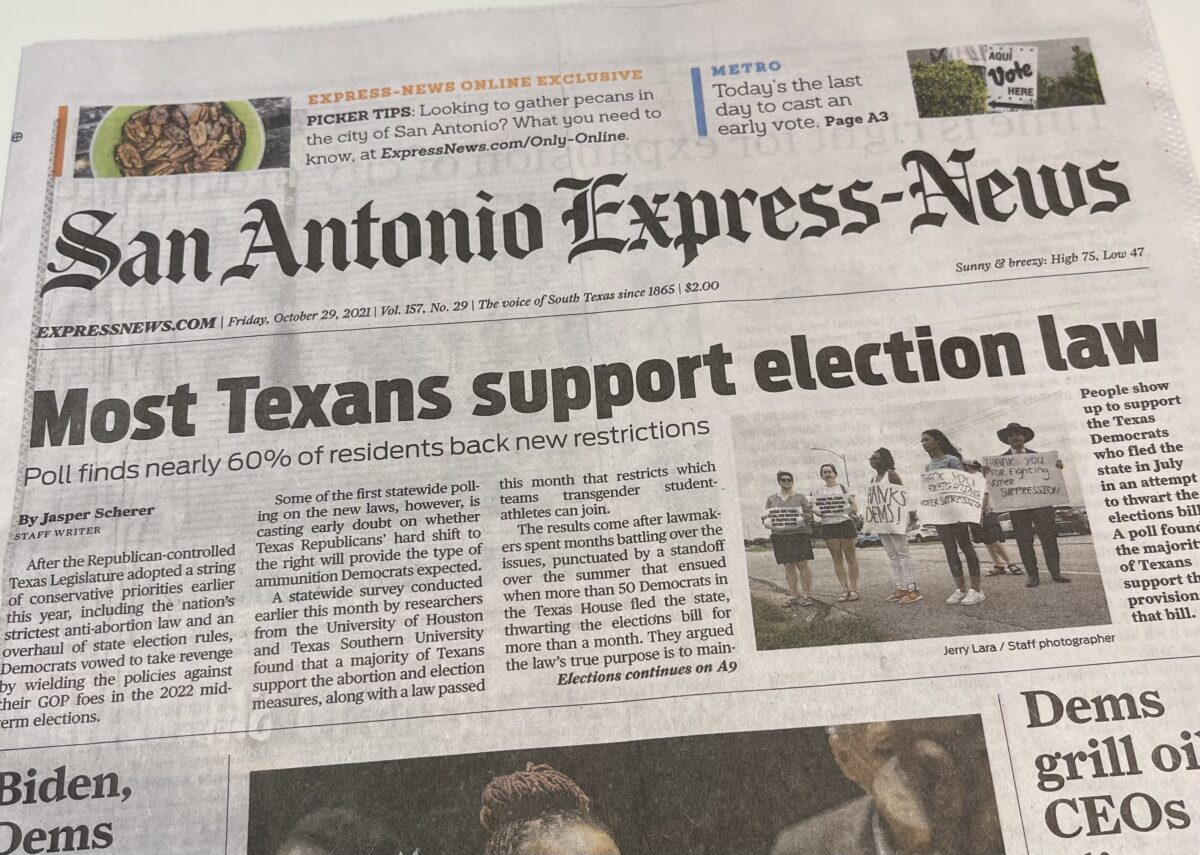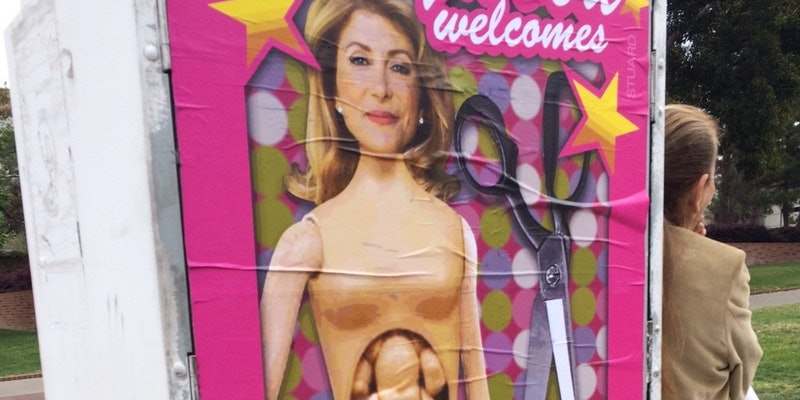Shortly after public poll results were released last week that a majority of Texans support Senate Bill 1, the fair election legislation, the U.S. Department of Justice filed suit in a federal court challenging the law. Apparently, DOJ believes their mission is to protect Texans from legislation that most of them say they want.
Not that poll results showing broad support for SB 1 wasn’t big news. This headline screamed across my hometown paper in San Antonio last week and also showed up in Houston.
The implications were immediate:
If a poll conducted by the Hobby School of Public Affairs at the University of Houston and the Barbara Jordan – Mickey Leland School of Public Affairs at Texas Southern University showed that most Texans support the Senate Bill 1 — the Election Reform Legislation that passed in the second special session this year, that means the Democrats who walked off the Texas House floor in June and shut down the Texas legislature were not speaking for the majority of Texans, as they insisted. They weren’t even speaking for a good chunk of the people who elected them. Instead, they were speaking for a minority of the minority.
The “Most Texans Support Election Reform” headline was like headlines we have become accustomed to seeing the day after November elections when Texans have been told for months that the conservatives who are governing the state are so unpopular that they will be voted out of office — the House will flip — the Congressional delegation will be replaced.
It never happens. Apparently, those who actually believe it will happen have a huge misunderstanding of who the people of Texas are.
Going beyond specific issues like support for the Election Reform Bill or the long-standing track record of Texans electing conservatives to run the state, there’s much more to know about the 29 million Texans whose families have either been here for hundreds of years as well as those who just unpacked their U-Haul from California last week.
One thing we know from focus groups and other available data is that Texans – regardless of their age, race, ethnicity, or political ideology – are proud of being Texan. Most say that the thing they are proud of is that our state is a place that does things right – the cost of living is low, jobs are plentiful, families flourish here. Texans are proud of our state’s reputation for independence – as well as the deep roots of our diverse population. We value both freedom and faith and, for the most part, we like each other.
Which is why the polling results were not surprising – or they shouldn’t have been. Despite the lawsuits and media outrage when it became law, 85% of Texans believe it is perfectly appropriate to be asked to show a photo ID before you cast a ballot. Three-fourths of Anglos, 64% of Latinos, and 63% of African Americans also believe that public high school and middle school students should only compete in sports associated with their biological sex. And when it comes to elections, majorities support most every provision included in the elections reforms legislation – 82% agreed that ballot harvesting, which has a long, ugly history in Texas, should be made a felony and 74% support providing your driver’s license number on your mail-in ballot. Even the most controversial provision on the reforms – prohibiting drive-through voting – is supported by 59% of Texans who understand that voting requires the privacy of a voting booth. It can’t be done in a car full of people.
Headlines like “Most Texans Support Election Law” demonstrate a big gap between who Texans are and who the left and the media think they are. The conservative majority values life and liberty, they embrace opportunity and diversity – in short, they want to Keep Texas Texan. No one should be surprised that people with those values would want to ensure that every election is fair and honest to keep the state on the right track. The headline and polling results tell us something else the people of Texas value – common sense.



